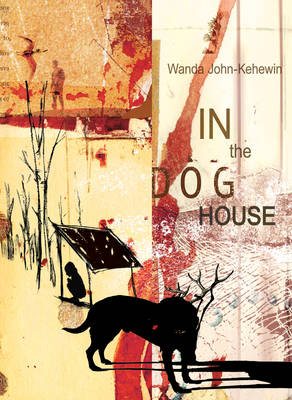
- Afhalen na 1 uur in een winkel met voorraad
- Gratis thuislevering in België vanaf € 30
- Ruim aanbod met 7 miljoen producten
- Afhalen na 1 uur in een winkel met voorraad
- Gratis thuislevering in België vanaf € 30
- Ruim aanbod met 7 miljoen producten
Omschrijving
In her first idiom-shattering book of poetry, Wanda John-Kehewin endeavours to "speak her truth," combining elements of First Nations oral tradition with a style of dramatic narrative that originates from the earliest traditions of cultural storytelling and also keeps pace with the rhythmical undulations of Canadian poets such as James Reaney and E.J. Pratt.
However, in a contemporary setting, the magniloquent narrative of nation-building has given way to fragmentary and reflexive self- examination that is inextricably bound to a history of colonization, the residual effects of which are buried deep within silent sufferers. Divided into four aspects of the Medicine Wheel - one of many stone structures scattered across the Alberta Plains - this collection calls for us to acknowledge the blatant neglect of quality of life on Native reserves and to explore ameliorative processes of restorative justice.
In emotive and yet wryly unsentimental tones, John-Kehewin lends her voice to many forms of suffering that surround enforced loss of culture, addressing topics such as alcohol addiction, familial abandonment, religious authority, sexual abuse, and the pain of mourning for loved ones. John-Kehewin does not spare herself when relating her own stories, even as she tells the stories of others that are so like her own, admonishing humanity for its lack of conscience in poems that journey from the turmoil of the Gaza Strip to rapidly dissolving ice floes ...
Wanda John-Kehewin is, as she describes herself, "a First Nations woman searching for the truth and a way to be set free from the past" - shoving aside that lingering sense of shame and stigma - taking the reader on a healing journey that reveals language to be an elusive creature indeed and one that gives new definition to what being "in the dog house" could be, if we as human beings listen carefully and learn to remedy our misunderstandings.
Specificaties
Betrokkenen
- Auteur(s):
- Uitgeverij:
Inhoud
- Aantal bladzijden:
- 80
- Taal:
- Engels
Eigenschappen
- Productcode (EAN):
- 9780889227491
- Verschijningsdatum:
- 29/05/2012
- Uitvoering:
- Paperback
- Formaat:
- Trade paperback (VS)
- Afmetingen:
- 178 mm x 231 mm
- Gewicht:
- 154 g

Alleen bij Standaard Boekhandel
Beoordelingen
We publiceren alleen reviews die voldoen aan de voorwaarden voor reviews. Bekijk onze voorwaarden voor reviews.











